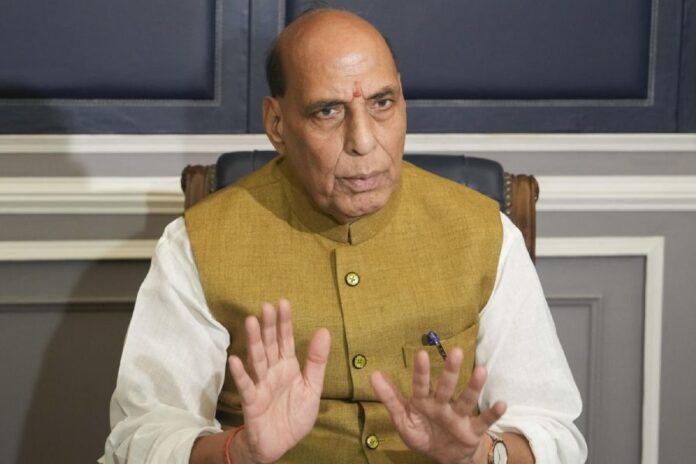In a pivotal event that underscores the strategic importance of the northeastern region of India, Defence Minister Rajnath Singh is set to chair a top security conference of Army commanders in Gangtok, Sikkim. Scheduled to take place from 10 October 11, 2024, this conference aims to address critical security challenges and enhance operational readiness in light of the evolving geopolitical landscape.
The Importance of the Conference
The conference of Army commanders holds immense importance for national security and defense preparedness. With Sikkim’s strategic location bordering China, it serves as a crucial point for discussing various operational strategies, border management, and infrastructure development. The meeting is expected to focus on several key areas, including:
- Operational Preparedness: The conference will provide a platform for commanders to assess the current state of operational readiness and identify areas for improvement. Discussions will likely center on troop deployment, training exercises, and logistics management.
- Border Security: Given the volatile situation along the India-China border, enhancing border security measures is a top priority. Commanders will deliberate on strategies to strengthen surveillance, intelligence-sharing, and response mechanisms in the region.
- Infrastructure Development: The conference will also address the need for improving infrastructure in border areas. Enhanced road and communication networks are essential for swift troop movement and effective logistics support during crises.
- Collaboration with Other Security Forces: The conference is an opportunity to discuss collaboration between the Army, paramilitary forces, and local law enforcement agencies to ensure a cohesive security strategy in the region.
Rajnath Singh’s Role
As the Defence Minister, Rajnath Singh plays a crucial role in shaping India’s defense policies and strategies. His presence at the conference in Gangtok highlights the government’s commitment to strengthening security in the northeastern region. Singh is expected to provide guidance on policy directions, address concerns raised by the commanders, and emphasize the importance of modernizing the armed forces.
Addressing Regional Concerns
The northeastern states of India face unique security challenges, including insurgency, ethnic conflicts, and cross-border issues. Singh’s engagement with Army commanders will facilitate discussions on these regional concerns and help formulate effective strategies to address them. By understanding the specific dynamics of Sikkim and its neighboring states, the Defence Ministry can better allocate resources and support military operations.
The Importance of Sikkim
Sikkim, known for its scenic beauty and rich biodiversity, is also strategically significant due to its proximity to China, Nepal, and Bhutan. The state is home to important military installations and serves as a critical hub for the Indian Army’s operations in the region. Key points of interest regarding Sikkim’s strategic significance include:
- Geopolitical Location: Sikkim’s location makes it a focal point for India’s defense strategy in the northeastern region. It acts as a barrier against potential threats and helps secure the Siliguri Corridor, a vital land connection between the northeastern states and the rest of India.
- Cultural and Ethnic Diversity: The state is characterized by a diverse population, including various ethnic groups. This diversity necessitates a nuanced approach to security, as social dynamics can impact stability in the region.
- Tourism and Economic Development: While security is paramount, Sikkim also relies heavily on tourism as a key economic driver. Balancing security measures with the promotion of tourism and local culture is essential for the region’s sustainable development.
The upcoming conference is expected to yield several important outcomes that could shape the future of defense strategies in the region:
- Enhanced Security Measures: Commanders will likely outline actionable plans to bolster security across the border areas, ensuring that the Indian Army remains vigilant and prepared for any eventuality.
- Improved Coordination: The conference aims to foster better coordination among various security forces and governmental agencies. Streamlined communication and collaboration will enhance operational efficiency.
- Policy Recommendations: The discussions may lead to policy recommendations that can be presented to the government for further consideration. These could include proposals for infrastructure development, troop deployment strategies, and investment in new technologies.
- Strengthened Morale: High-level meetings such as this one play a vital role in boosting the morale of the troops. By demonstrating the government’s commitment to their welfare and operational readiness, the conference can enhance the overall morale of the armed forces.
The security conference of Army commanders in Gangtok, chaired by Defence Minister Rajnath Singh, represents a major step towards strengthening India’s defense posture in the northeastern region. By addressing critical issues related to operational preparedness, border security, and infrastructure development, this conference aims to enhance the Indian Army’s readiness to tackle emerging challenges.




